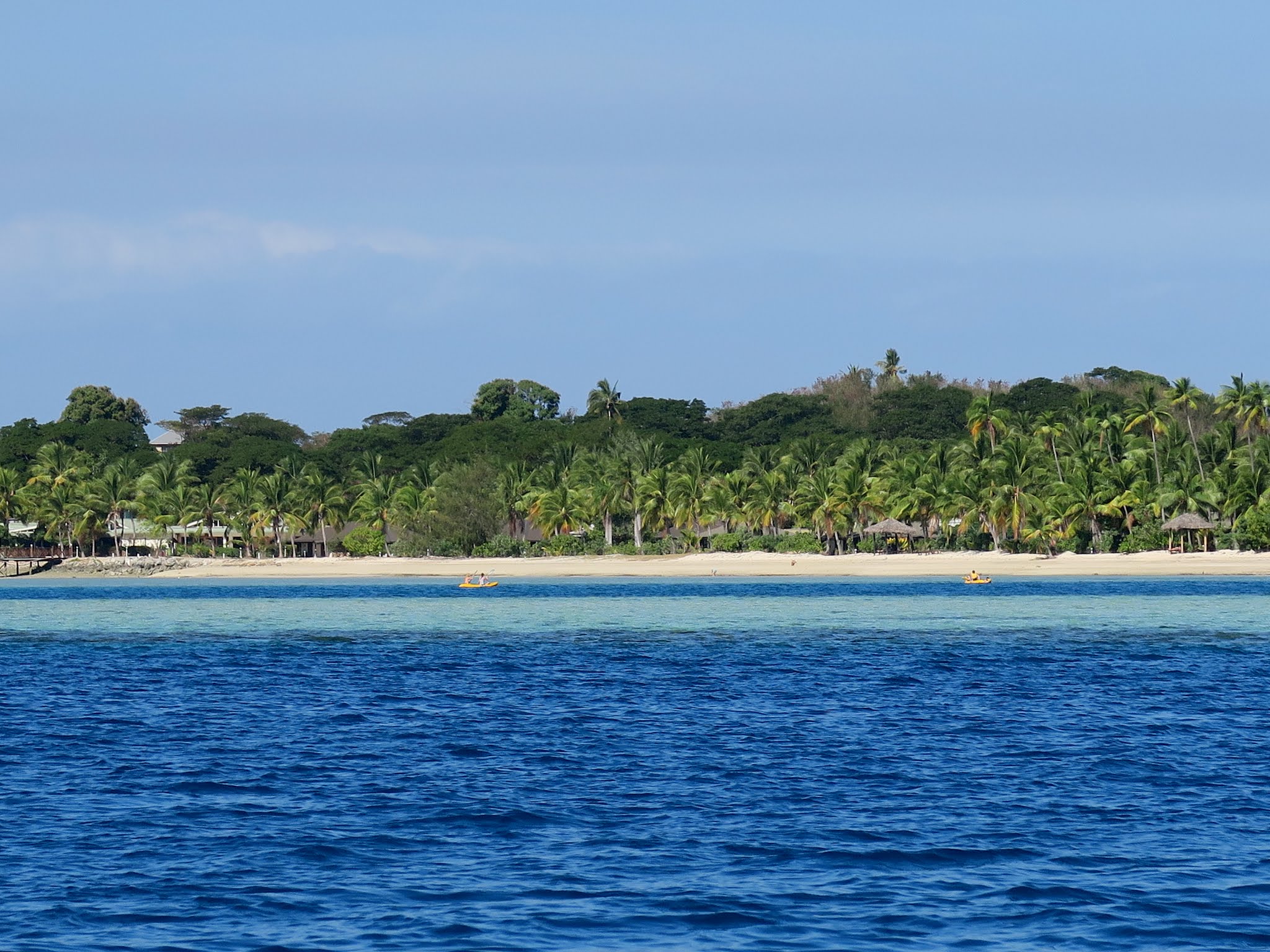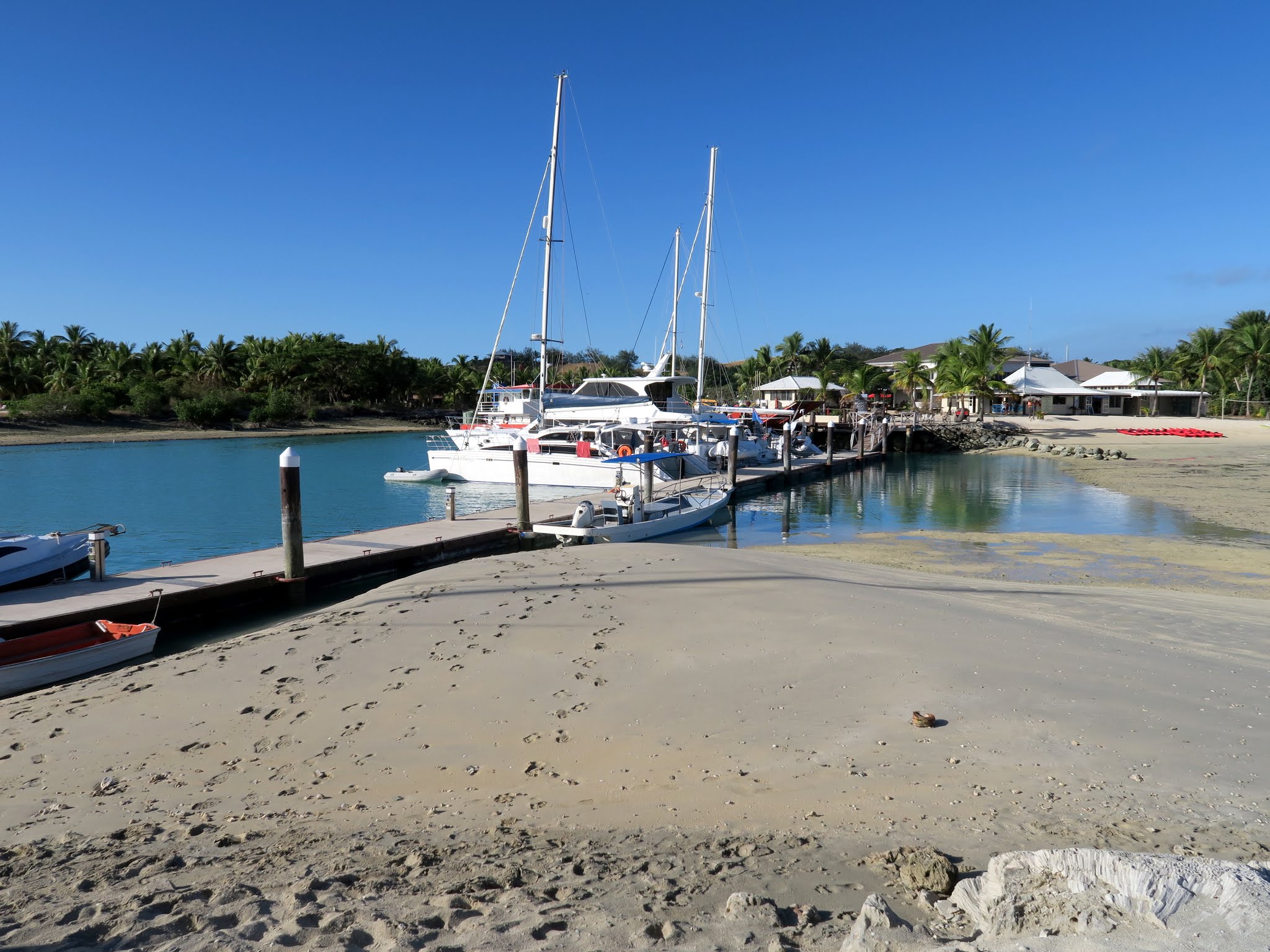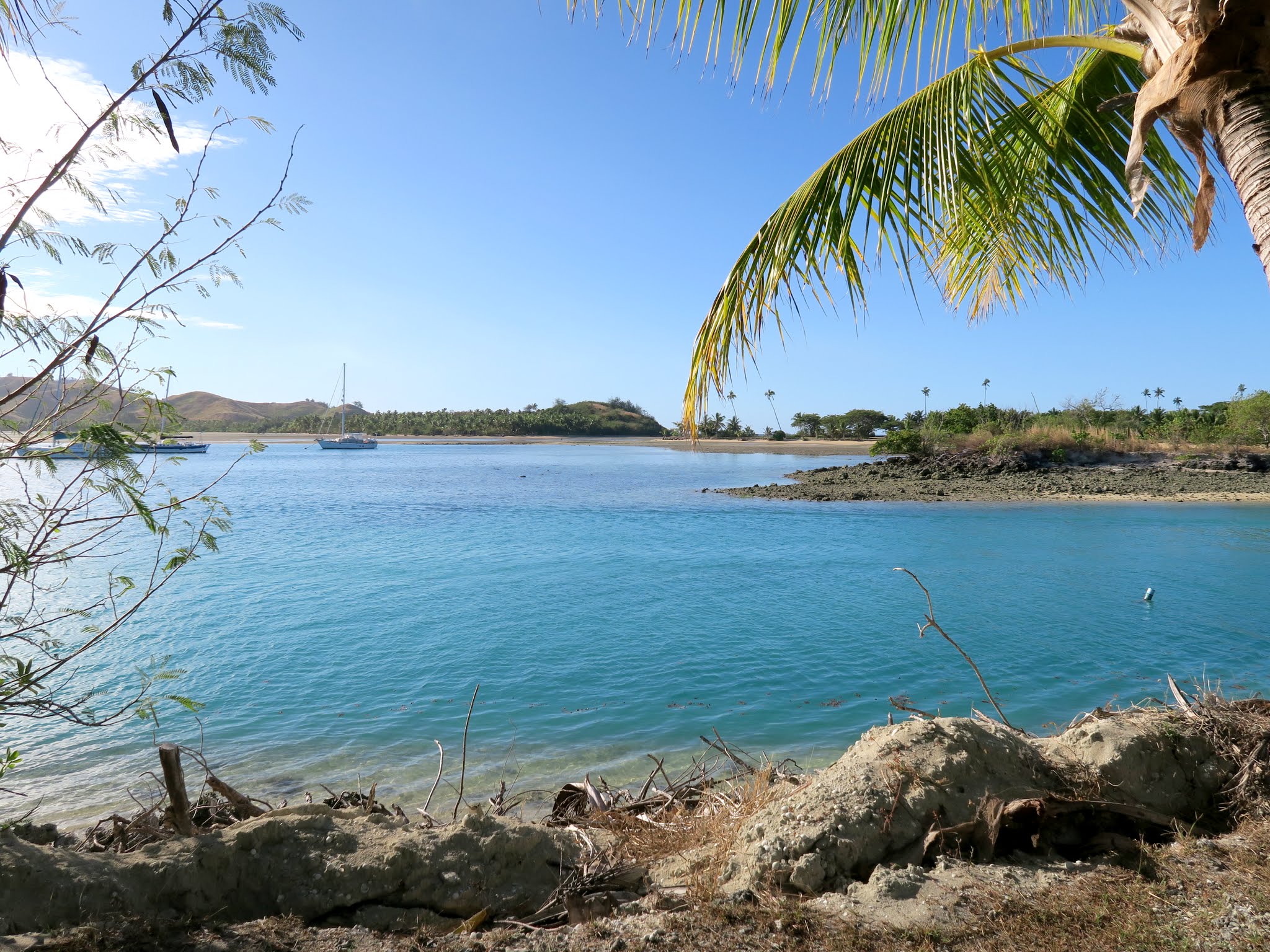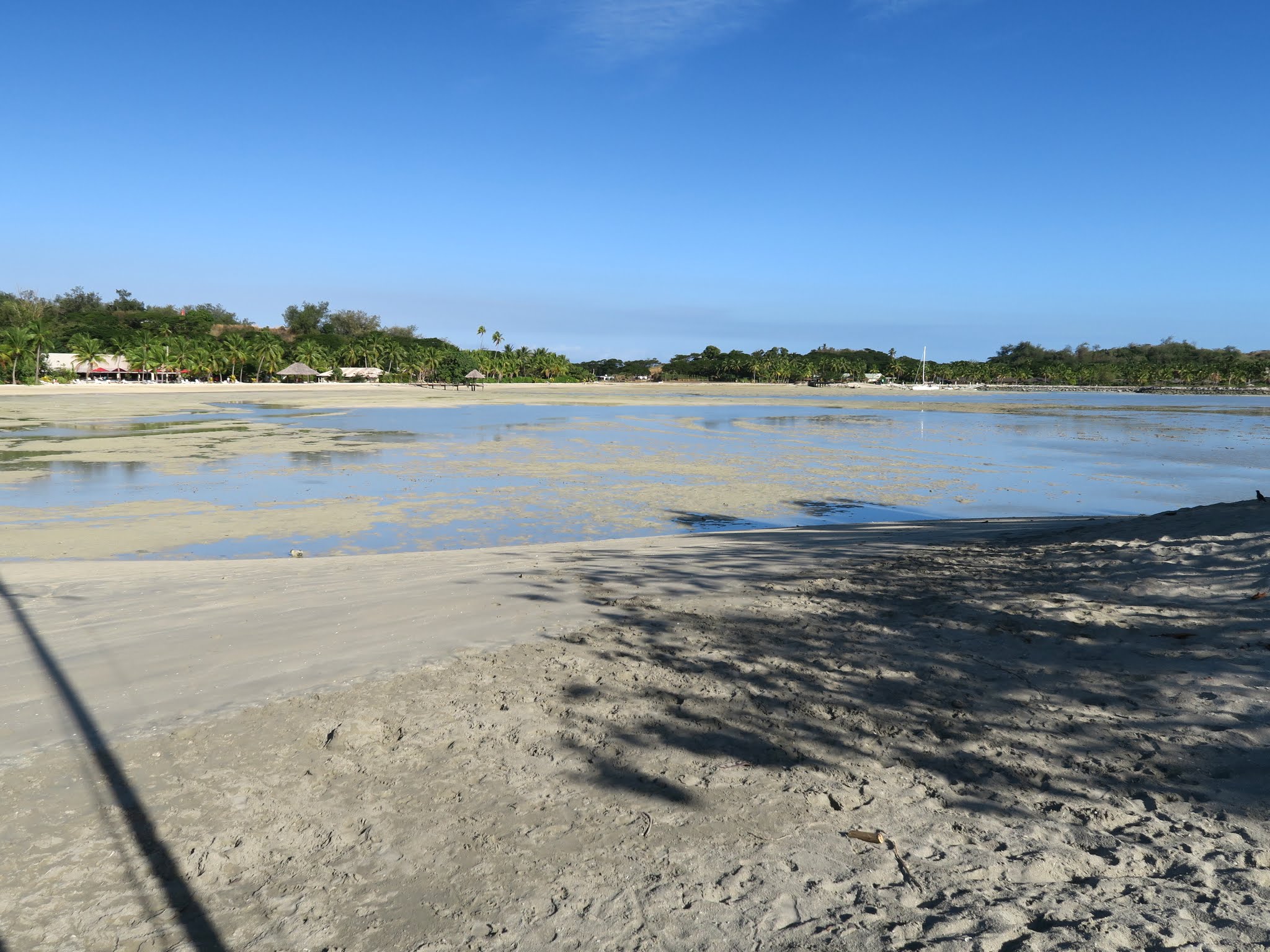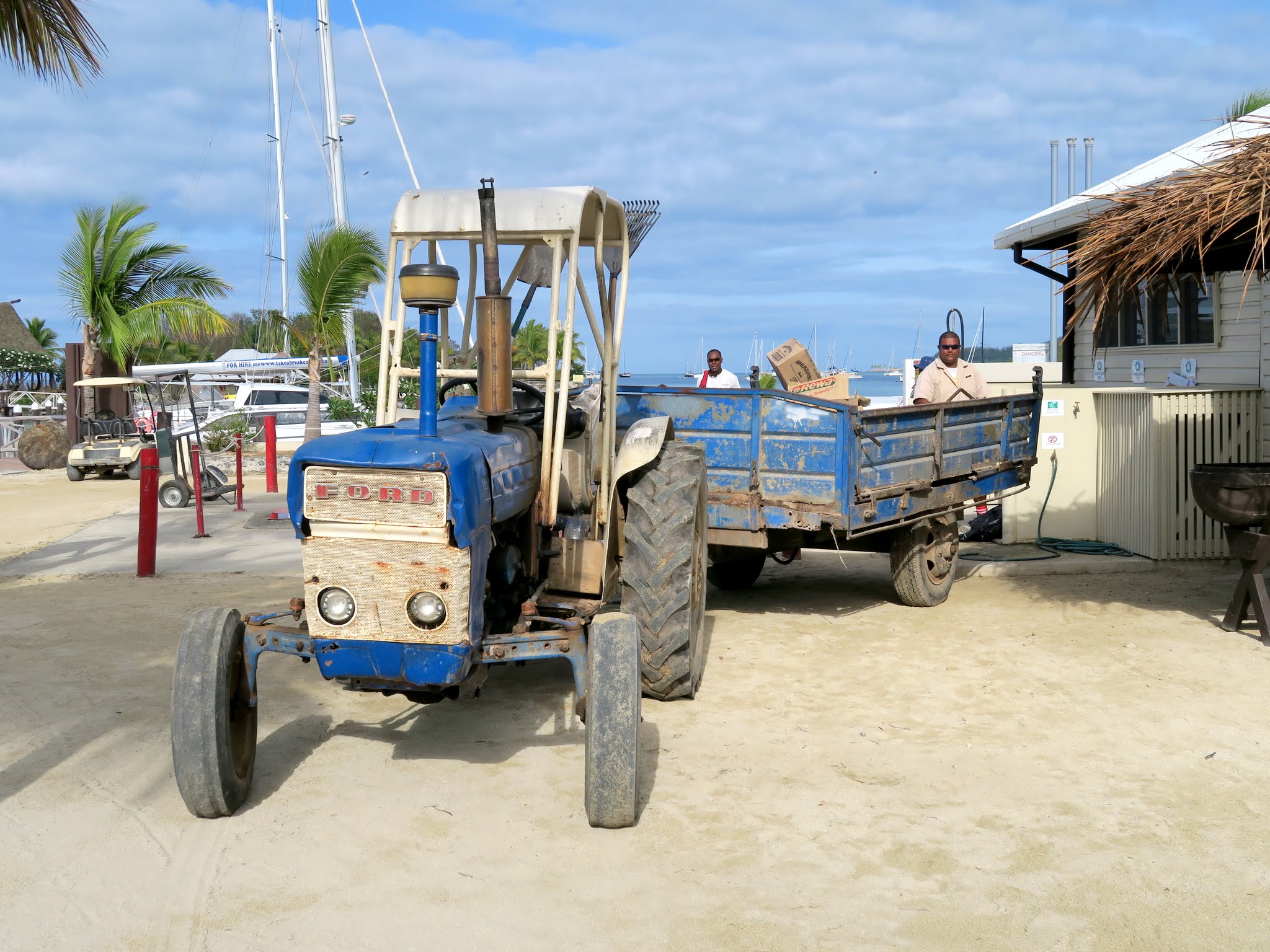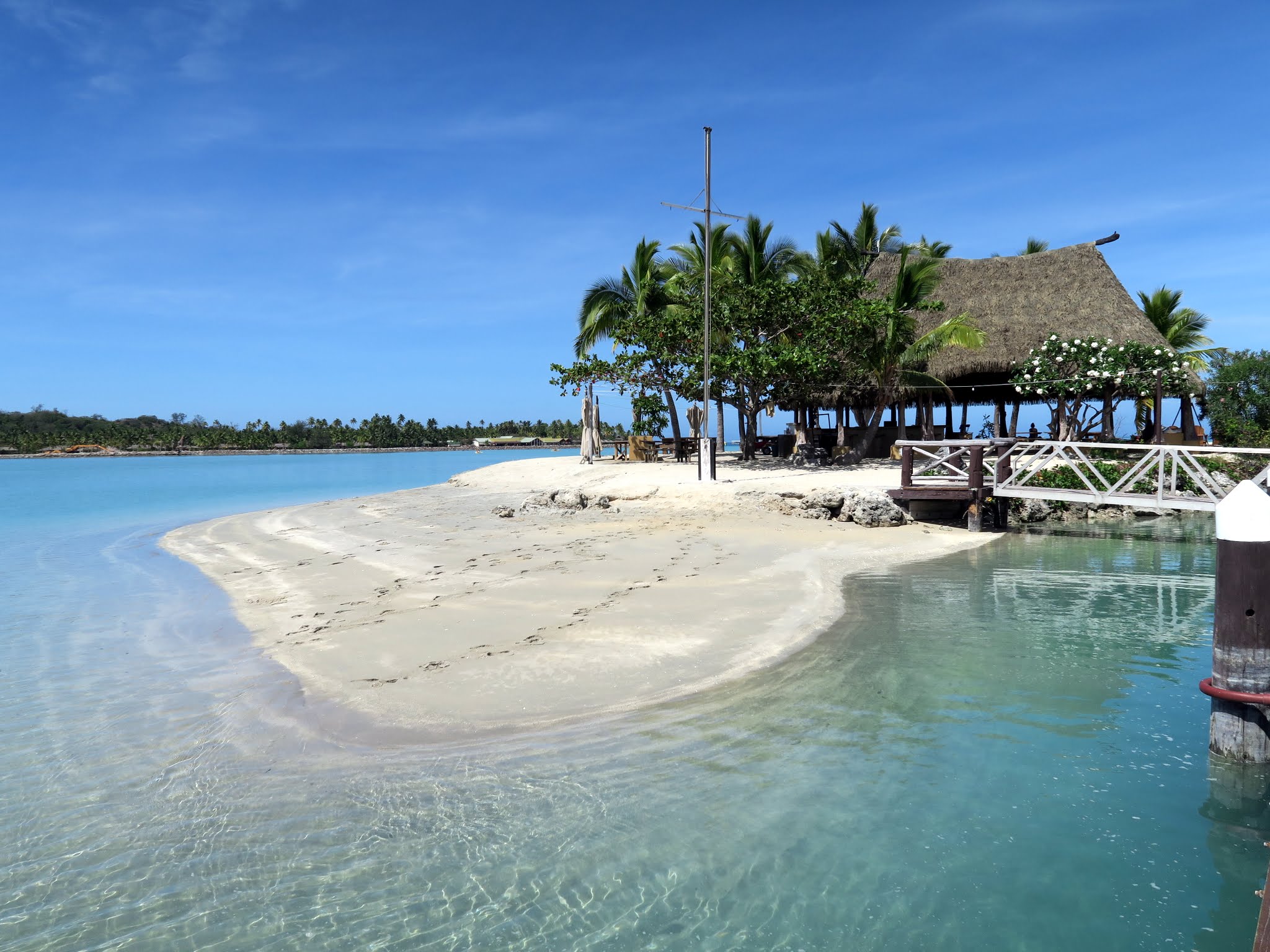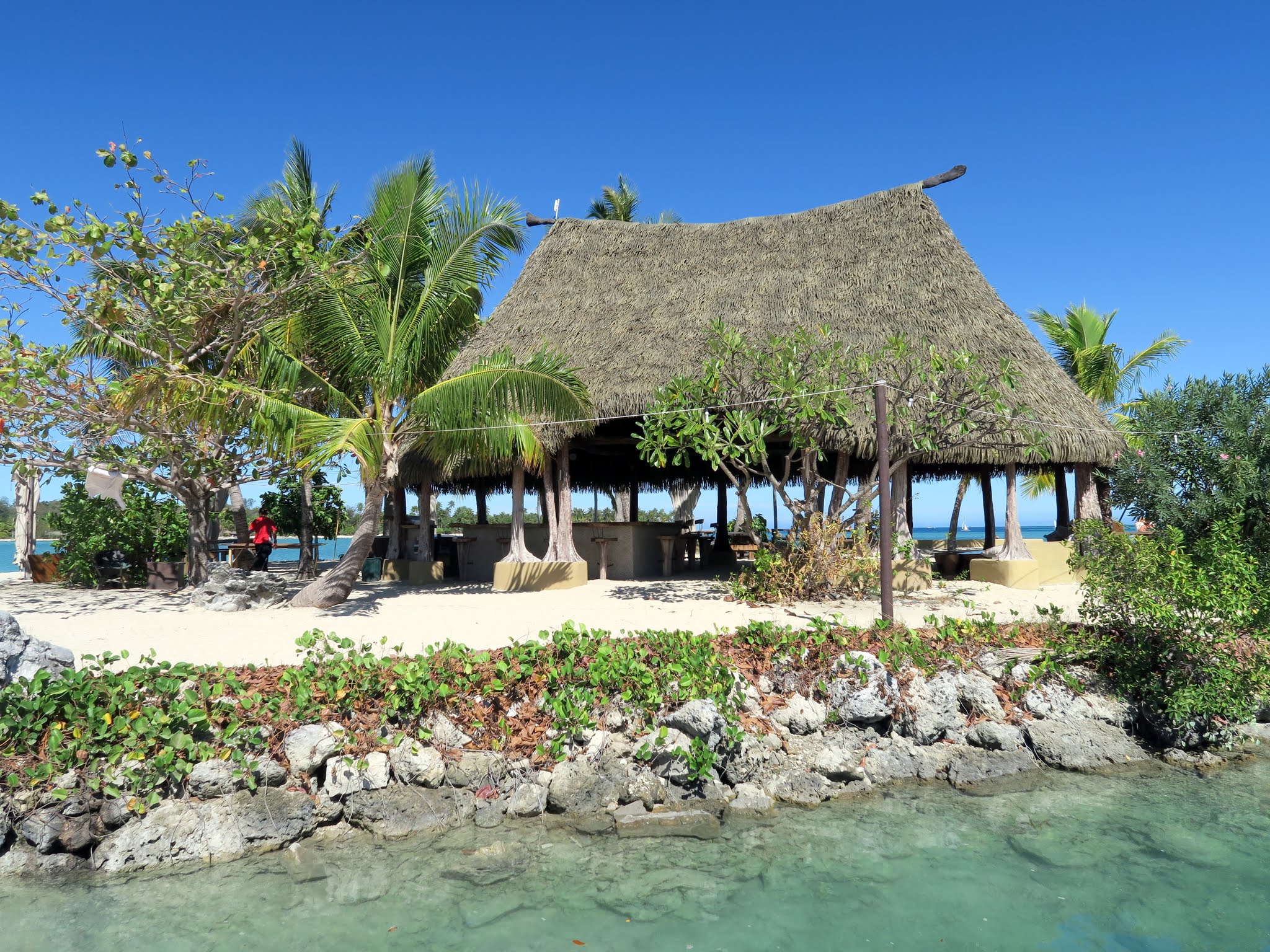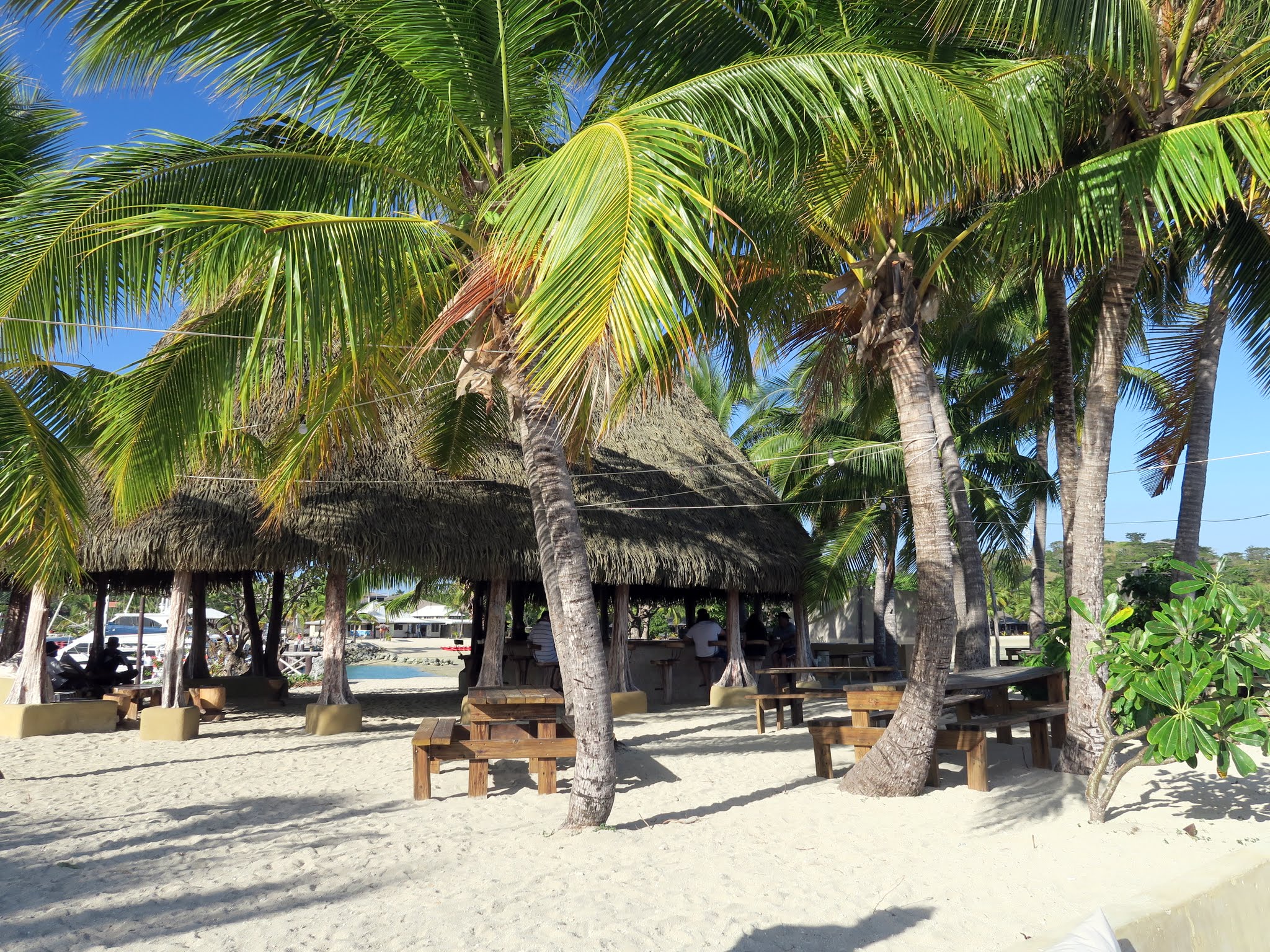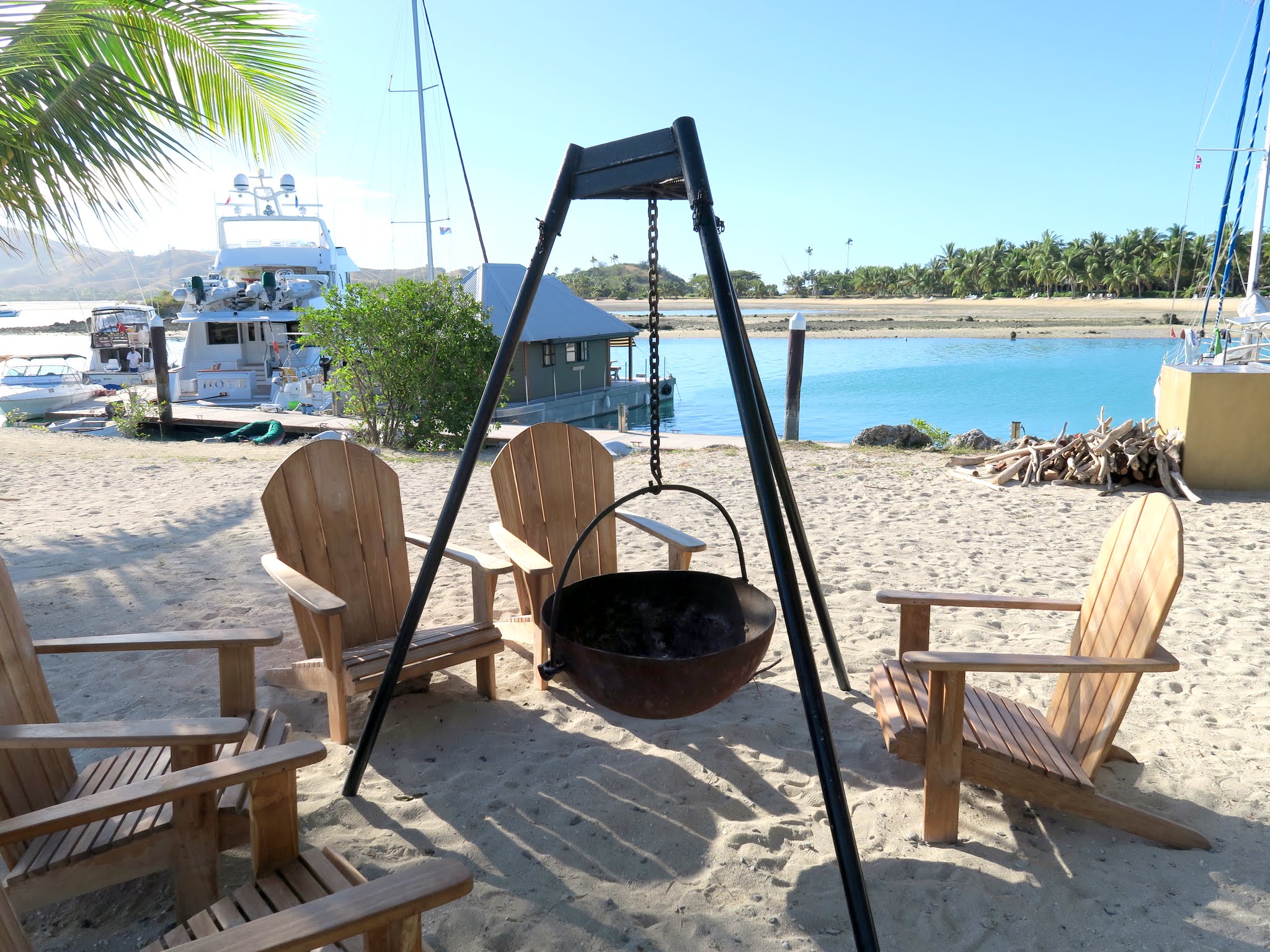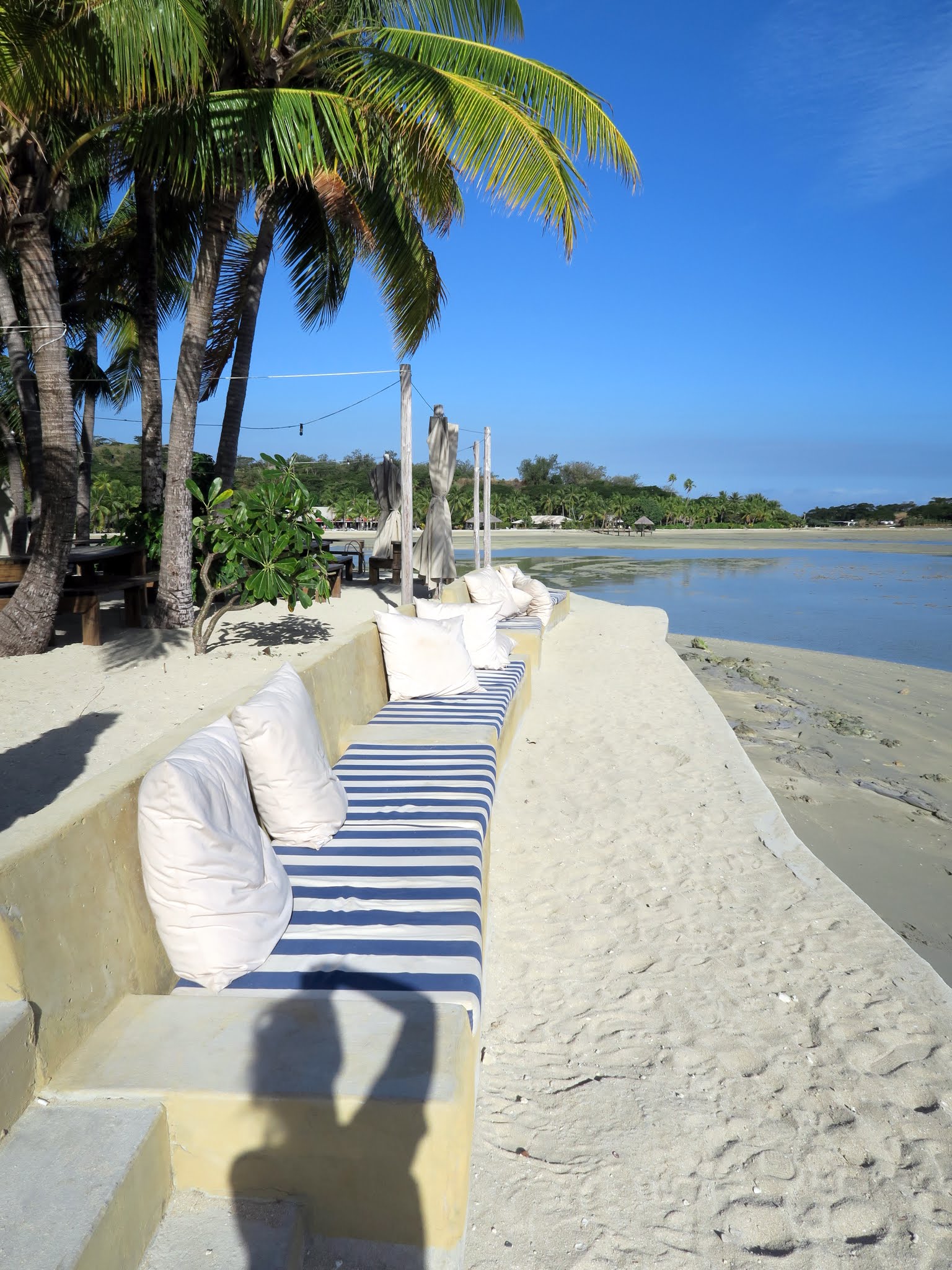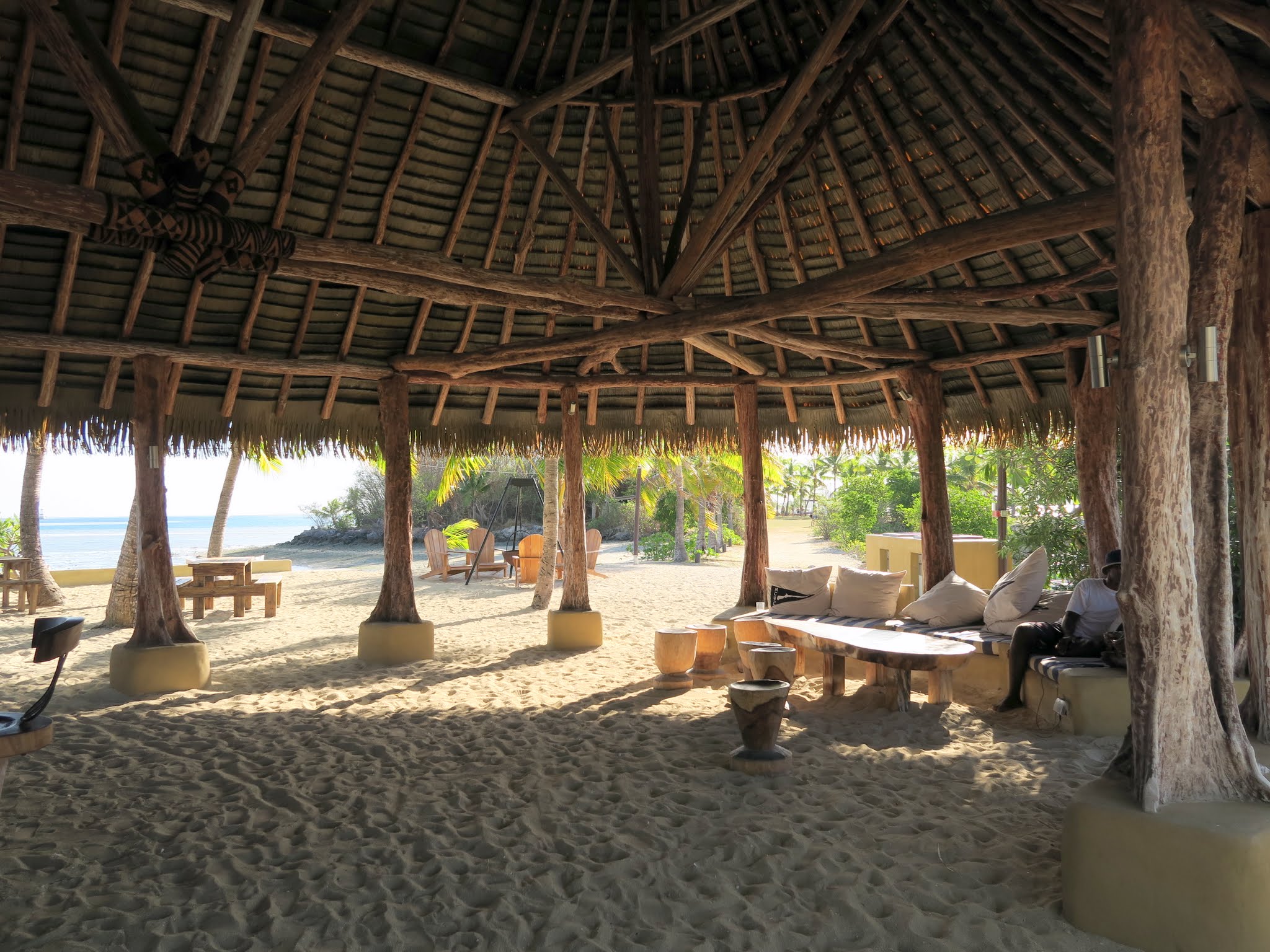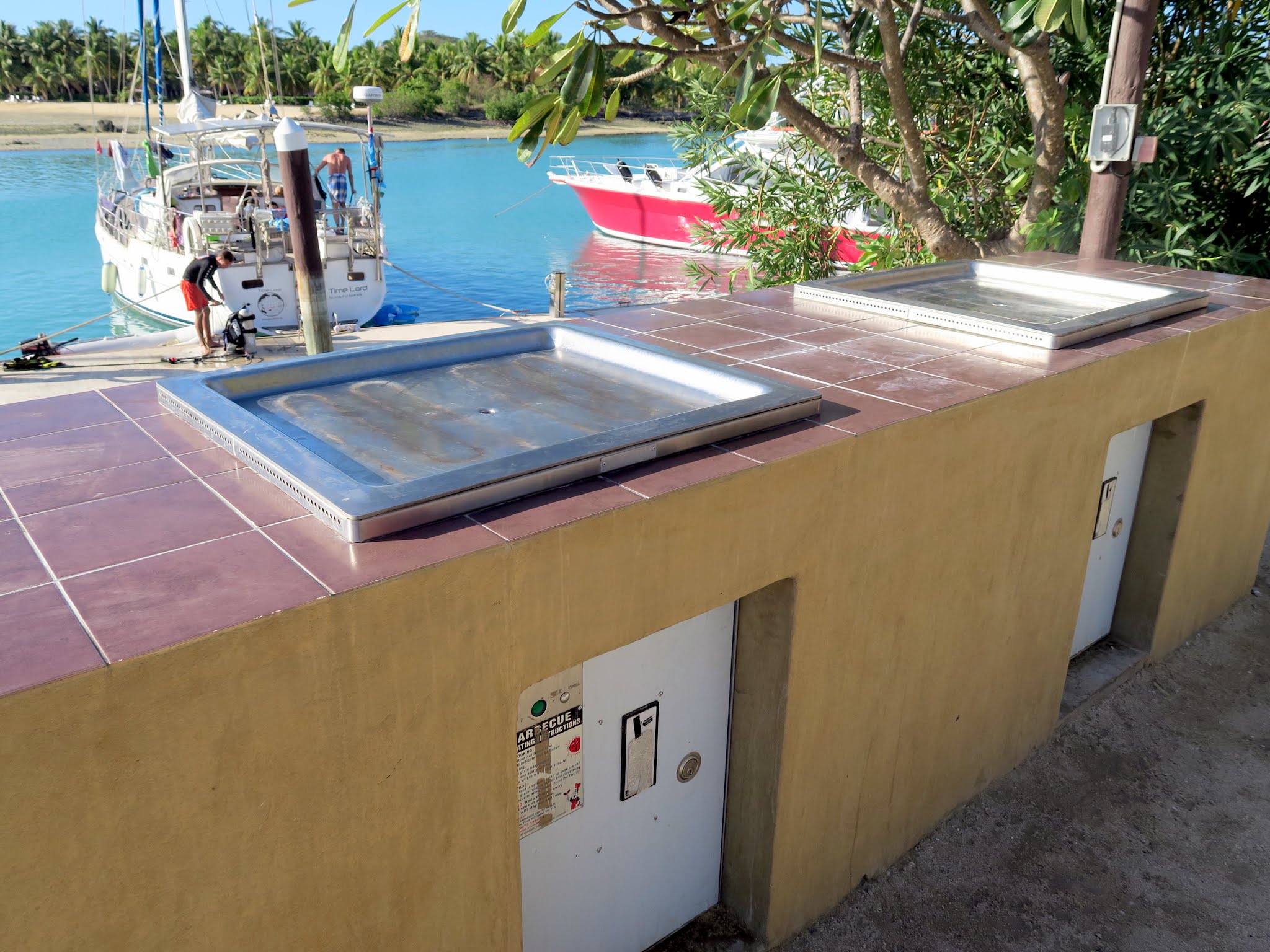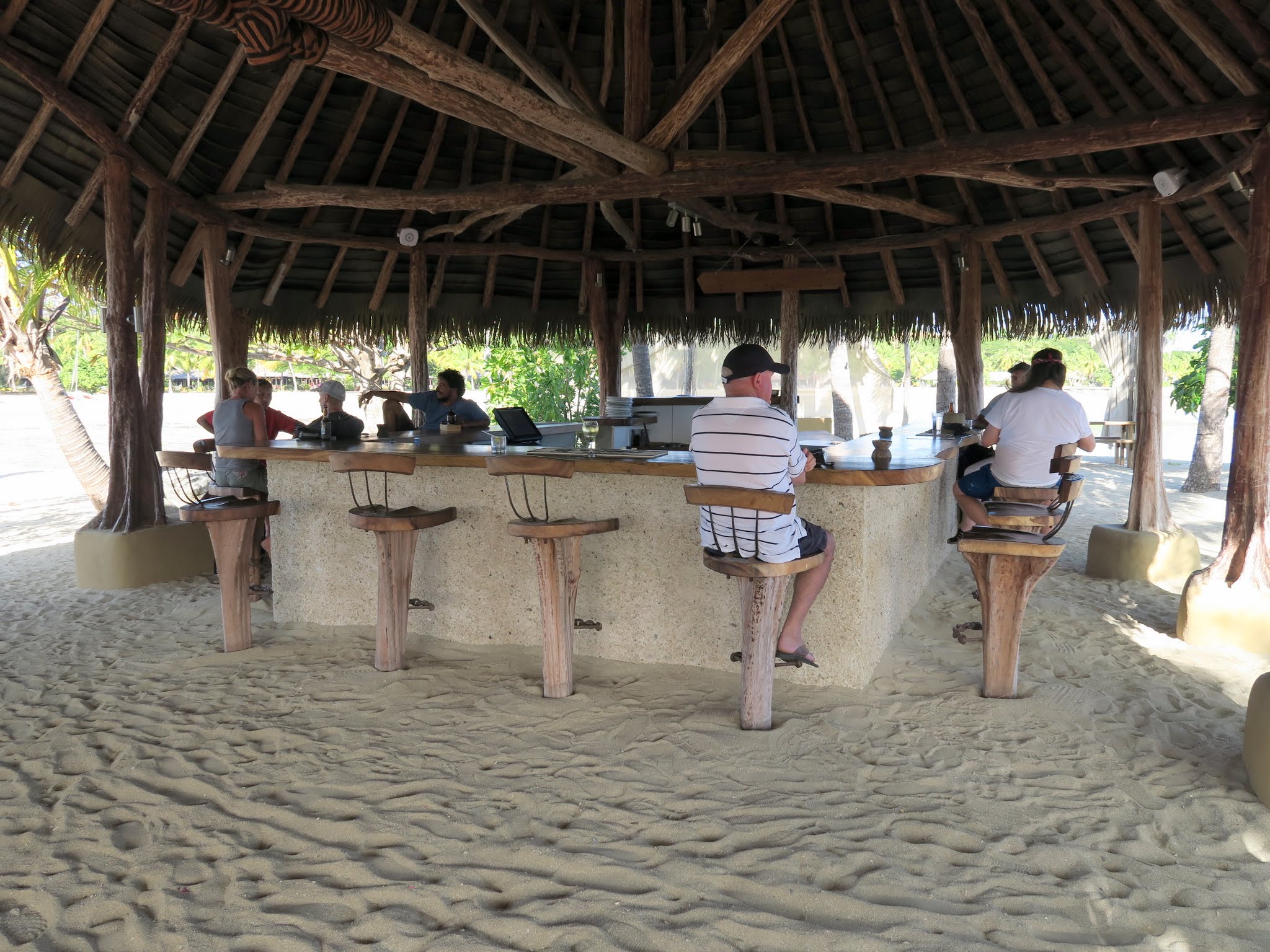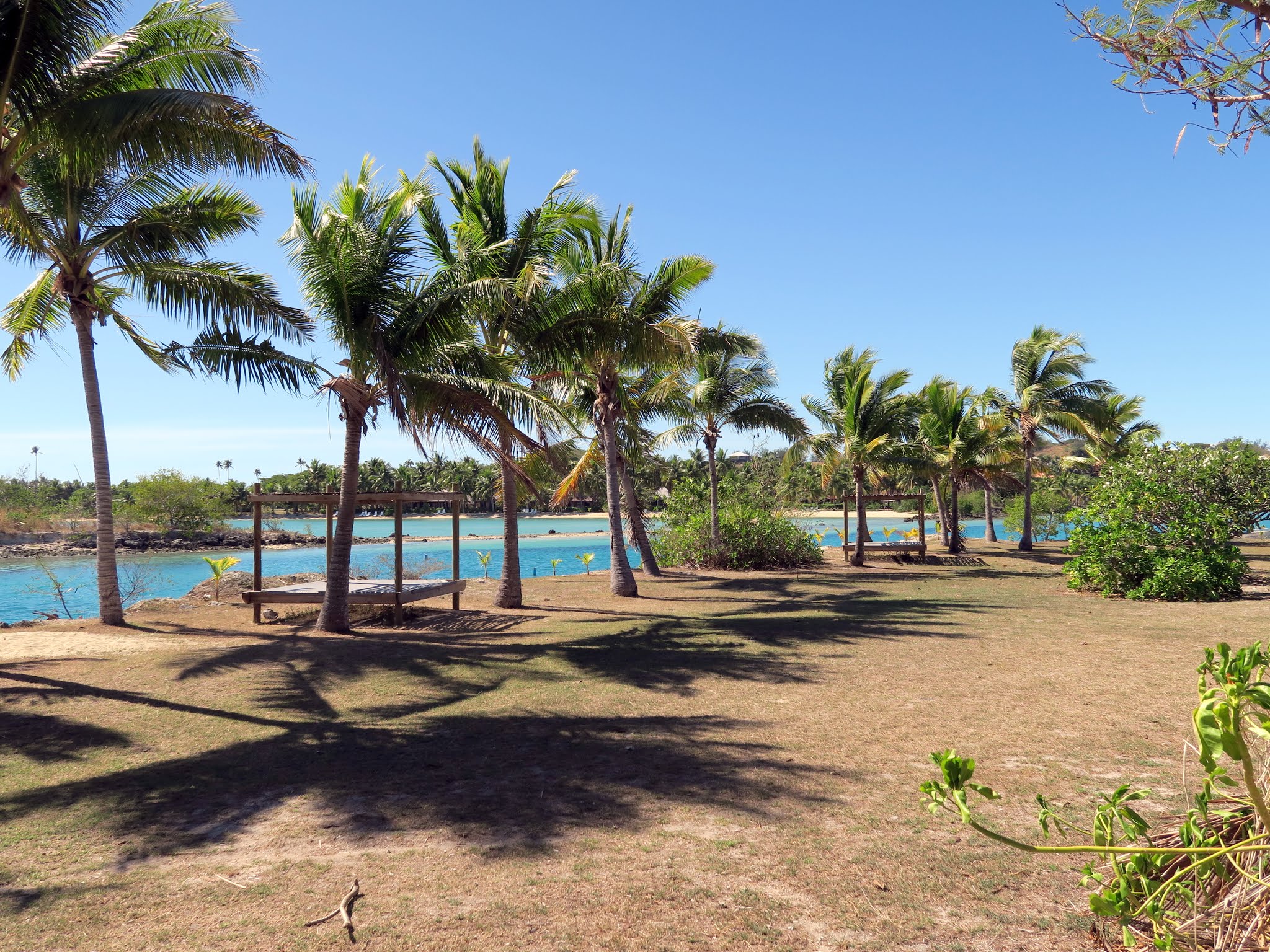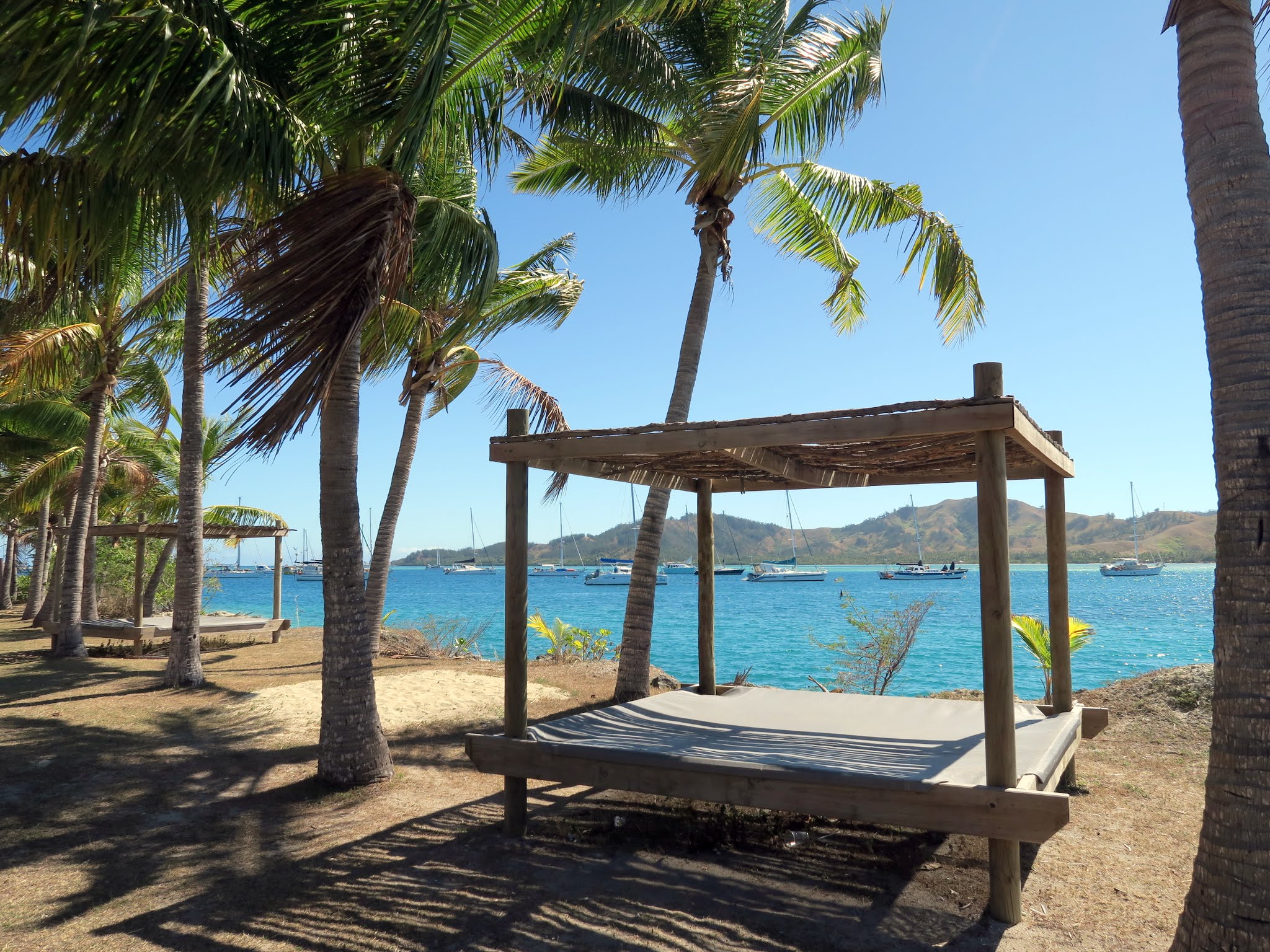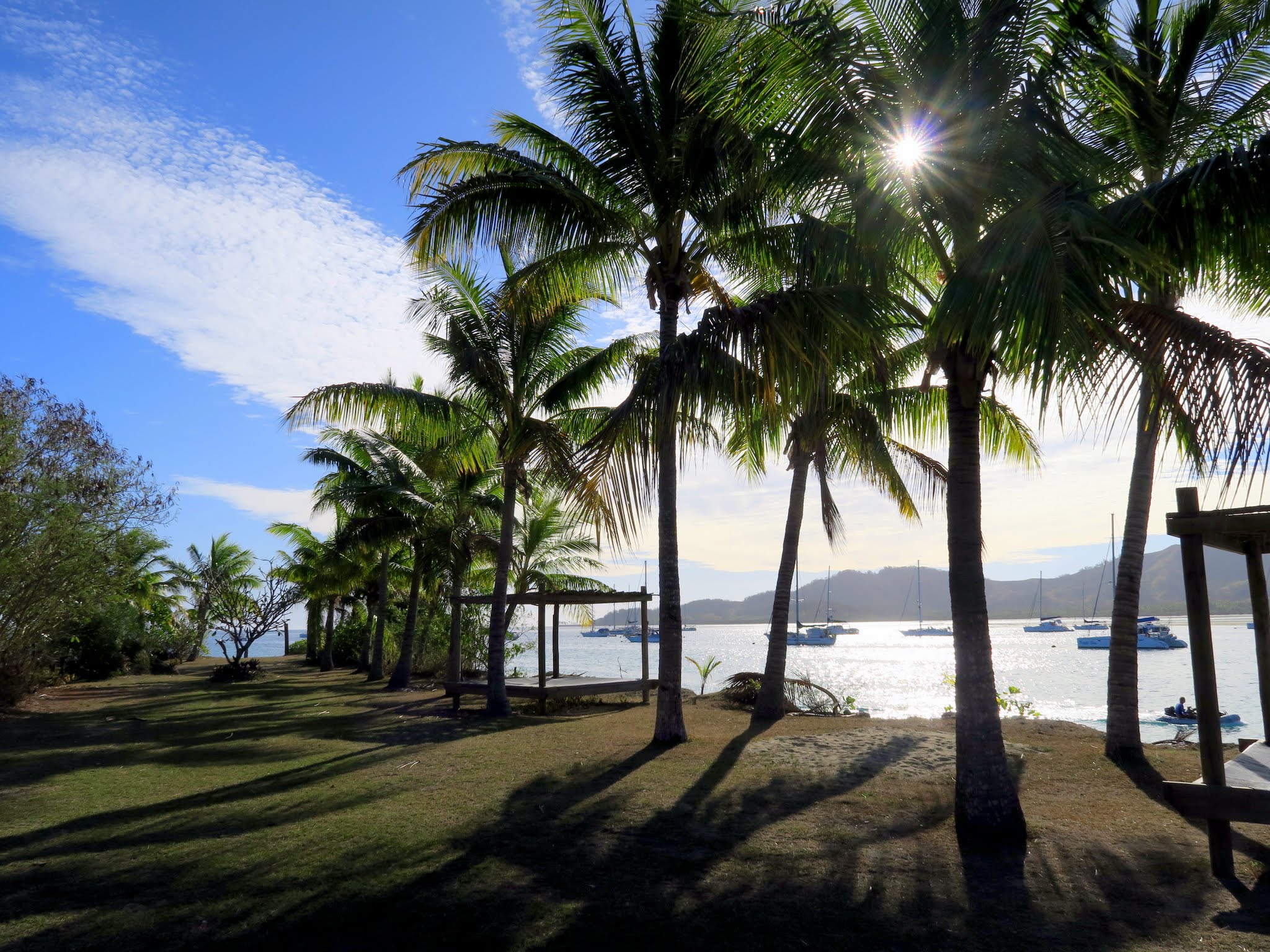July 7, 2015
Musket Cove is both a major tourist destination and a haven for yachties. In fact, it may well be the number one yachtie destination in the South Pacific. Whether fast-tracking around the globe, cruising as a lifestyle, or anything in between, pretty much every passing cruiser visits Musket Cove.
Musket Cove’s mooring and anchorage area is nestled between two islands joined by a mostly-submerged isthmus. Malolo is the larger, hillier island. Malolo Lailai is much smaller and flatter. They join at an angle which forms a harbor large enough for both a mooring area and an anchorage area.
There are three resorts on Malolo Lailai, but Musket Cove Island Resort is the one that created the famous haven for yachties. It provides the moorings, a small marina, a nice cafe onshore and a poolside restaurant down the beach. There’s also a grocery store, washing machines, and most popular–a thatched roof, open-air bar built on its own little sand island, connected to the resort area by walkway where the boats are docked.
(The larger Malolo Island also has resorts, but nothing within convenient walking distance and not part of the Musket Cove “array.”)
Cruisers love to extol the virtues of this Shangri-La; so we’d been hearing about it for years. One young Aussie man, hearing we’d been to eastern Fiji but not Musket Cove, shook his head and pretty much said if we haven’t been to Musket Cove, we’ve haven’t even begun to see the best of Fiji. Then he did what many male cruisers seem to do: rhapsodize about the grills around the bar where you can cook your own food. What is it about men and these grills? You’d think this was the most amazing thing ever invented! I always feel like informing them that they have just such a device in their own boat galley which can also perform this miracle of heating and preparing food.
I guess it’s just the social aspect of being next to the thatched roof bar, on a beach with other cruisers milling around. The grills used to be wood-burning but have since been replaced with electric grills where you have to drop money in to make them work. You would think this would kill the romance, but no, guys seem just as excited about these magical electric devices that heat meat.
We were excited to finally see the famous Musket Cove, but there was one issue. We were warned and advised before we went that the woman in charge of the moorings could be difficult, someone with whom you should make an effort to “get on her good side.” We’d heard a lot of names used to describe her, none of them very nice. Friends of ours said to just call her, mention their names, and ask if we could reserve a mooring before we came over. We called, and she flatly told that it’s first-come, first-serve only. Fair enough.
We headed over the next day and were thrilled to see a few empty moorings, then let down to see names attached to them. We finally spotted one with no name and grabbed it. We called the office and got the same lady, who proceeded to tell Rich that she had promised this mooring to another American boat. Rich reminded her of what she said yesterday about first-come, first-serve. He had her with that and she knew it; so she angrily said we could stay but had to come in immediately and fill out their forms as she was leaving the office in a few minutes. It was apparent we had not gotten on her good side.
We went ashore and filled out the forms. Meanwhile we found that everyone connected with running the place seemed strangely cranky in that way people get by season’s end in busy tourist hubs. We’ve certainly seen that before, but never in Fiji. In their defense I’d have to say dealing with lots tourists and cruisers can burn anyone out quickly.
After filling out the paperwork, we took a walk around. It didn’t do much to offset our bad first impression. I knew these west islands were much drier than on the east side, but I was still surprised at just how dry they were. There’s greenery provided by palm trees and planted shrubs, but the backdrop is dry, scrub-covered hills. It’s more like a desert oasis than a tropical paradise.
We walked around to take a look at the bay, and it wasn’t love at first sight. The wide arch of the beach was nice, but there’s a huge coral shelf here. When the tide goes out, which it currently had, it looks like a giant mudflat. As I took this in, I noticed a tractor driving across this dried out reef. Thinking back to the Aussie man, I sarcastically thought, “You’re right, my entire life has meant nothing until I saw this tractor on this mudflat.” At this point our impression of Musket Cove was suffering from our inflated expectations.
Below, a gallery from our initial visit to Musket Cove, including a shot of their tractor. As it turned it, we hit it at a bad time. It generally looks much nicer than this, but this post is about our first impression.
We did walk out to the bar area, and found a very simple thatched roof structure over a sand-floor, the only seating choice either the stools along the bar or bench seating along the wall. The area outside was nice, though. I liked the fire pit and the seating carved into the side of a sand mound, but the electric grills seem kind of cheesy.
We walked further out on the island and it was quite nice. An expanse of grass with daybeds shaded by palm trees overlooked the mooring area. So far this little island was the nicest place we’d seen here, which wasn’t saying a lot. Below are some pictures of the bar’s island. –Cyndi

